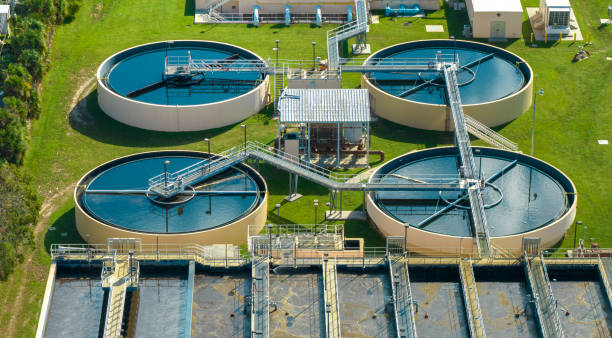Introduction
Supportable water the board is fundamental notwithstanding expanding worldwide water shortage and contamination. One of the vital parts of overseeing water assets dependably is the successful treatment of wastewater. A treatment plant for wastewater assumes an imperative part in guaranteeing the nature of water that is gotten back to normal waterways or reused for different purposes. These plants assist with eliminating toxins from wastewater, safeguarding both the climate and general wellbeing. In this article, we investigate the significance of treatment plants for wastewater in maintainable water the executives and how they add to natural preservation.
What is a Treatment Plant for Wastewater?
A treatment plant for wastewater is an office that cycles water that has been utilized in homes, ventures, and organizations. This wastewater incorporates sewage, stormwater spillover, and modern effluents. The objective of a treatment plant is to eliminate hurtful substances like solids, synthetics, and microorganisms from the water, making it ok for release once more into the climate or in any event, for reuse.
The treatment interaction regularly includes a few phases, including:
Starter Treatment: This stage eliminates huge flotsam and jetsam like sticks, leaves, and rubbish.
Essential Treatment: This includes settling strong waste from the water by permitting heavier particles to sink to the lower part of huge tanks.
Auxiliary Treatment: Natural cycles are utilized to separate natural matter in the wastewater, typically including microscopic organisms to drink the poisons.
Tertiary Treatment: This last above and beyond cleanses the water through cutting edge strategies like filtration, substance medicines, or sanitization, guaranteeing that it satisfies the necessary ecological guidelines.
Commitment to Maintainable Water The executives
Water Protection: One of the main commitments of a treatment plant for wastewater is the potential for water reuse. Through legitimate treatment, wastewater can be changed over into recycled water, which can be utilized for water system, modern cycles, and, surprisingly, non-consumable purposes in families, for example, latrine flushing. This lessens the interest for freshwater assets, assisting with moderating them.
Decrease of Contamination: By eliminating destructive poisons from wastewater, treatment plants forestall the defilement of waterways, lakes, and seas. Without successful treatment, wastewater would contaminate normal water sources, influencing sea-going environments and making water perilous for human utilization and untamed life.
Safeguarding Environments: Wastewater that isn’t as expected treated can present hurtful synthetic compounds, weighty metals, and microbes into biological systems. These poisons can upset the regular equilibrium, hurt oceanic life, and lessen biodiversity. Treatment plants for wastewater guarantee that water delivered into the climate is cleaner and less harming to environments.
General Medical advantages: Untreated wastewater contains perilous microorganisms that can spread sicknesses. By treating wastewater, treatment plants shield general wellbeing by dispensing with destructive microorganisms that can debase drinking water or sporting water bodies.
Environmental Change Moderation: at times, treatment plants are intended to catch methane gas delivered during the breakdown of natural waste. This methane can be changed over into energy, lessening the carbon impression of the office and adding to environmental change moderation efforts. A few plants even utilize environmentally friendly power sources to control their tasks.
Difficulties and Developments in Wastewater Treatment
While treatment plants for wastewater are significant for maintainable water the executives, they truly do confront difficulties. One significant issue is the rising volume of wastewater because of urbanization and populace development. As urban communities extend, treatment plants should be overhauled or extended to deal with the bigger amounts of wastewater.
Advancements in wastewater treatment are helping address these difficulties. Progresses in film filtration, bright sanitization, and natural supplement evacuation strategies are working on the proficiency of treatment plants, permitting them to deal with wastewater all the more really and at a lower cost. Furthermore, decentralized treatment frameworks, which treat wastewater nearer to its source, are acquiring fame in country or creating regions where huge unified plants may not be plausible.
End
A treatment plant for wastewater is a foundation of supportable water the executives. By guaranteeing that wastewater is appropriately treated and gotten back to the climate in a protected and reusable form, these plants assist conserve with valuable watering assets, safeguard biological systems, and advance general wellbeing. As the interest for water keeps on rising, the job of treatment plants in working with water reuse and further developing water quality will turn out to be considerably more basic to accomplishing long haul manageability. Successful wastewater the executives isn’t simply a specialized need, however a crucial system in protecting the climate and getting the fate of our water assets.


